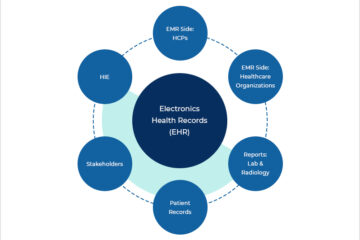
U.S. premature births linked to air pollution cost more than $4 billion a year in medical care and lost economic opportunity, a new analysis estimates.
Almost 16,000 babies arrive early each year due at least in part to air pollution, according to researchers who analyzed air quality data and birth records.
Annual costs associated with these preemies include nearly $3.6 billion (about 3.2 billion euros) in lost wages and productivity due to physical and mental deficits tied to the early arrivals as well as $760 million (about 678 million euros) for extended hospitalizations and long-term use of medications, researchers calculated.
“Air pollution-associated preterm birth contributes direct medical costs in the first few years of life due to associated conditions, such as in the newborn intensive care unit, as well as lost economic productivity due to developmental disabilities and lost cognitive potential,” lead study author Dr. Leonardo Trasande, an environmental health researcher at New York University School of Medicine in New York City, said by email.
Pregnancy normally lasts about 40 weeks, and babies born after 37 weeks are considered full term.
In the weeks immediately after birth, premature infants often have difficulty breathing and digesting food. They can also encounter longer-term challenges such as impaired vision, hearing, and cognitive skills as well as social and behavioral problems.
The U.S. preterm birth rate declined to 11.4 percent in 2013 from a peak of 12.8 percent in 2006 but remains far higher than in other developed countries, Trasande and colleagues report in the journal Environmental Health Perspectives.
Approximately 3 percent of preterm births in the U.S. can be attributed to air pollution, the researchers conclude, based on data from the Environmental Protection Agency, the Centers for Disease Control and Prevention and the Institute of Medicine.
Air pollution may contribute to the problem, because a buildup of toxic chemicals in the blood can cause immune system stress that weakens the placenta and shortens the amount of time the baby can remain in the womb.
Preterm births linked to air pollution were higher in urban counties, primarily in Southern California and the Eastern U.S., the analysis found.
One limitation of the study is that it can’t prove pollution causes preterm births, or why these two things may be connected, the authors note. The analysis also lacked data on individual exposure to air pollution that might influence how much toxins impacted pregnancy outcomes.
Previous research has linked air pollution to preterm births even after controlling for other factors that often coincide with living in areas with bad air, such as poverty or tobacco smoke exposure, noted Dr. Bruce Lanphear, a researcher at Simon Fraser University in Burnaby, British Columbia who wasn’t involved in the study. But toxic air is just one of many variables that can influence pregnancy outcomes.
“Preterm birth, as well as other diseases and disorders, are due to the cumulative impact of various risk factors and it isn’t constructive to continually pit one risk factor over another,” Lanphear added by email.
Limiting the effect of air pollution on preterm births requires improved air quality, which might be achieved through efforts such as cleaner energy technology, more public transportation, improved paths for cycling and walking, and positioning schools and daycare centers far from highways, Lanphear noted.
Women should also seek prenatal care early in pregnancy, particularly when they have had miscarriages or preterm births before, said Dr. Shruthi Mahalingaiah, a researcher at Boston University School of Medicine who wasn’t involved in the study.
Social, economic, emotional and medical issues all may come into play with preterm births, particularly because women who live in areas with worse air may also be in communities where people have fewer financial resources or less access to quality medical care, Mahalingaiah said by email.
“Preterm birth is a multifactorial issue,” she said.
[Source:- Fox News Health]




